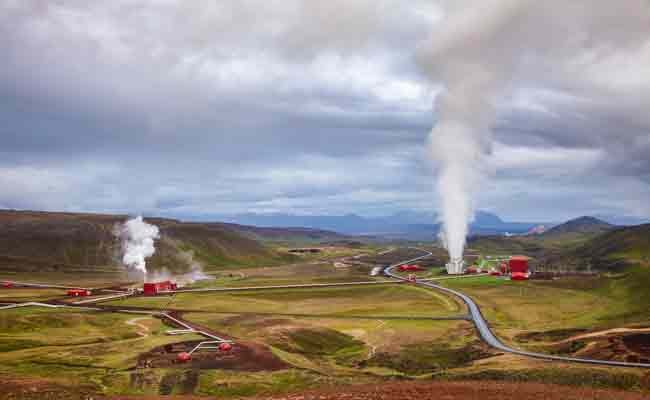
Rightful Claims: Suing The City of Clarksville For Slips And Falls
March 12, 2023
Top 5 Best Hoteling Software In 2023 With Details
March 12, 2023Closest To The Sun: The Environmental Effects Of Geothermal Energy is our today’s topic. As global temperatures continue to rise, scientists and environmentalists are searching for solutions that decrease our reliance on fossil fuels and help protect the environment. Geothermal energy is one of the most promising renewable sources of energy available today. It is a clean, reliable source of electricity that does not create emissions and can be used in many applications.
Closest To The Sun: The Environmental Effects Of Geothermal Energy

Definition Of Geothermal Energy
Geothermal energy is a form of renewable energy derived from the Earth’s own internal heat. It is created by tapping into thermal energy stored beneath the surface of the Earth and can be used to generate electricity or to heat and cool homes. The process works by drilling down into the Earth’s crust, where temperatures remain relatively constant year-round. Heat pumps are then used to pump heat out of the ground, providing a sustainable source of energy with minimal environmental impact.
When discussing the environmental effects of geothermal energy, it is important to consider both its positive and negative impacts. On one hand, geothermal energy does not emit harmful greenhouse gases like carbon dioxide or methane, making it an environmentally friendly option for renewable energy production. Additionally, since geothermal resources exist in many places around the world, it also has the potential as a global solution for clean power generation.
Geothermal Energy And Climate Change
This type of energy is often referred to as “ground source” or “geo-exchange” energy. Geothermal energy is being used to generate electricity and heat homes, businesses, and other buildings.
Geothermal energy also helps to reduce the effects of climate change. Geothermal energy has the ability to reduce carbon dioxide emissions and other greenhouse gases, helping to reduce the impacts of global warming. By using geothermal energy, countries are able to reduce their reliance on fossil fuels and other non-renewable sources of energy, thus reducing their carbon footprints.
Geothermal energy is also closely linked to the use of weather API software. Weather API software is used to collect data about weather conditions and analyze it. This data can then be used to determine the best time to use geothermal energy in order to reduce emissions and conserve energy. Weather API software is also used to monitor air quality and to determine the best time to use geothermal energy in order to reduce air pollution.
Environmental Benefits
The use of geothermal energy produces fewer emissions than other forms of energy, including coal and natural gas. This means that geothermal energy is an environmentally friendly source of energy that does not contribute to global warming or air pollution. In addition, it can be used to generate electricity without releasing any harmful compounds, such as carbon dioxide and methane, into the atmosphere.
Geothermal energy is also an efficient source of energy because it can be used to heat homes and businesses without relying on traditional sources of energy, such as fossil fuels. Geothermal energy systems can operate without emitting pollutants, making them a much cleaner and more sustainable option for heating. In addition, geothermal energy systems are relatively inexpensive to install and maintain, making them a cost-effective choice for many homeowners and businesses.
Geothermal energy also has a positive impact on the environment in terms of water conservation. Geothermal systems use a closed-loop system, which means that water is not lost or wasted during the process of generating electricity. This helps to conserve water, an increasingly scarce resource. In addition, geothermal energy can be used to heat water for domestic use, reducing the need for water from rivers and lakes.
More Energy-Efficient Lifestyle Changes
The health of the environment is of utmost importance for the well-being of us all and it is essential that we all take the necessary steps to reduce our impact on it. Reducing the amount of energy used and the amount of waste produced are two of the best ways that everyday people can lessen their environmental impact.
One of the best ways to reduce energy consumption is to use energy more efficiently. This means switching off lights and devices when you’re not using them, using energy-efficient lightbulbs, and unplugging devices when they’re not in use. It’s also important to use appliances wisely and exactly when needed. For example, running a full load of dishes in the dishwasher or a full load of laundry in the washing machine will save energy and water.
Another effective way to minimize environmental impact is to reduce the amount of waste produced. This can be done by using reusable shopping bags, avoiding single-use plastic items like straws, and buying things in bulk. Reusing items and recycling the items that can’t be reused are also excellent ways to decrease waste production. Additionally, composting organic waste like fruit and vegetable scraps will not only reduce the amount of waste being sent to landfills but will also create nutrient-rich compost that can be used in a garden.
Buying locally-produced products is another great way to reduce the environmental impact of everyday life. Buying items that have been produced nearby not only reduces the amount of energy and resources used to transport items but also supports the local economy.
Geothermal energy has the potential to be a clean and reliable source of energy for generations to come. This in combination with simple environmental changes, this planet can be healed. Hope you enjoy reading our article Closest To The Sun: The Environmental Effects Of Geothermal Energy.



